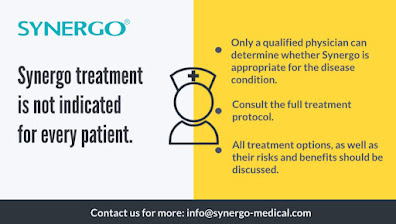Non-Muscle invasive bladder cancer disease
The bladder is a balloon-shaped organ in the pelvic area that stores
urine and is part of the urinary tract. Bladder cancer typically
affects older adults, though it can occur at any age. It is usually diagnosed
early, when it is most treatable. Bladder cancer is the 9th most common
cancer in the world. It is the 6th most common cancer among
men. It was estimated that, in the US, >80,000 new cases of bladder
cancer were diagnosed in 2024 and 16,840 bladder
cancer deaths occurred. In 2021, there were an estimated
730,044 people living with bladder cancer in the United States. The 5-year prevalence estimates
in the world, show that almost 2 Million people (all genders)
are living with bladder cancer within five years of a past diagnosis.
The following table presents the 10 countries with the
highest bladder cancer incidence in 2022.
|
Rank |
Country |
New cases |
ASR/100,000 |
|
|
Total WW |
614,298 |
5.6 |
|
1 |
92,883 |
3.4 |
|
|
2 |
US |
80,404 |
10.5 |
|
3 |
34,580 |
18.1 |
|
|
4 |
Japan |
34,568 |
7.0 |
|
5 |
Germany |
29,035 |
12.4 |
|
6 |
UK |
23,643 |
13.4 |
|
7 |
India |
22,548 |
1.6 |
|
8 |
Spain |
21,418 |
19.3 |
|
9 |
France (metropolitan) |
19,733 |
10.1 |
|
10 |
Russia |
19,352 |
6.9 |
Patients with bladder cancer are differentiated into one of
three groups: (1) those with low risk disease in whom the main risk is
recurrent low-risk papillary disease with a small chance of dying of the
disease; (2) those with intermediate and high-risk non-muscle-invasive disease
and Carcinoma in situ (CIS) in whom there is a high chance of disease
progression and subsequent death from bladder cancer; and (3) those with
muscle-invasive disease in whom there is imminent risk of death from bladder
cancer.
Non muscle invasive bladder cancer usually appears as small
growths, shaped like mushrooms. These grow out of the bladder lining. This is
called papillary bladder cancer. It can be removed and may never come back. T1
tumours are early cancers that have grown from the bladder lining into a layer
underneath. This layer is called the lamina propria. High grade T1 tumours
though being early cancers, can grow very quickly.
Carcinoma in situ is an intra-epithelial, High Grade,
non-invasive Urothelial Cancer (UC). It can be missed or misinterpreted as an
inflammatory lesion during cystoscopy if not biopsied.
The goals of current treatment for patients with
non-muscle-invasive bladder cancer are to prevent disease recurrence, or
progression to muscle-invasive disease, to avoid cystectomy (removal of the
bladder) and, ultimately, to enhance survival. Treatment options of non-muscle
invasive bladder cancer are relatively limited and not much, in terms of
effective treatment options, has been introduced in the last 60 years. Clinical
tests performed in past years have provided valuable information on the pathophysiology
and treatment of non-invasive bladder cancer.
Bladder cancer patients are not only numerous, but also suffer from reduced Quality of Life, and are at real risk of progression and specific deaths, they also pose a heavy economic burden on the healthcare system. Repeated TURBT operations, instillations, risk of progression into invasive disease and consequent cystectomies, systemic chemotherapy and/or radiotherapy are only few of the expensive routine procedures that the healthcare system provides, not including, of course, the high expenses due to complications, hospitalization days, morbidity, stoma devices and their maintenance. Several studies have reported that older patients are more susceptible to complications and poor outcomes from Radical Cystectomy - RC . Schiffmann et al reported in a retrospective study of 5,207 patients that 90-day mortality rates following RC were 6.4%, 10.1%, and 14.8% in patients aged 65–69 years, 70–79 years, and ≥80 years, respectively .
Synergo therapy -
Local RF-Induced Thermochemotherapy for the treatment of non-muscle-invasive bladder cancer (NMIBC)
Synergo represents an additional treatment option for people
with intermediate-risk or high-risk NMIBC whose disease has recurred following
intravesical BCG therapy, patients who are refractory to BCG, patients who are
resistant to BCG or patients who cannot tolerate BCG. Synergo can also be used
in response to patient preference or when supply of the drug is limited or
delayed.
The clinical benefits of the Synergo technology, as
presented in published articles, are the fact that patients will require fewer
treatments, fewer repetitive TURBT operations (which leads to shorter recovery
times). Also, sparing a cystectomy to a patient will give him/her several years
of functioning bladder, ability to function well at home and outside, and a
much better quality of life (to the family as well).
Synergo is conducted using local anesthesia (gel) in an
ambulatory (outpatient) setting. Patients resume their daily activities at the
end of each treatment.
The reduction in recurrences and the need for operations
improves patients' quality of life by preserving bladder functioning and
avoiding patients' lifestyle disruption. A recent study showed that the average
length of stay after cystectomy was 15 ± 13 days. In some of the patients this
can be avoided when Synergo is offered. For instance, Colombo et al. 2011
reported a 10-year DFS disease free survival of 53% with Synergo & MMC vs
15% with MMC. Long-term follow up evidence originating from a single center
experience showed a 70.8%. bladder preservation rate for a mean follow-up of
55.5 months. In 76.0% of patients, a radical cystectomy could be prevented for
two years from last TURBT, and in 61.1% a radical cystectomy could be prevented
for five years. Overall survival (OS) rate of patients who underwent radical
cystectomy was 71.0% at five years and 42.6% at ten years.

